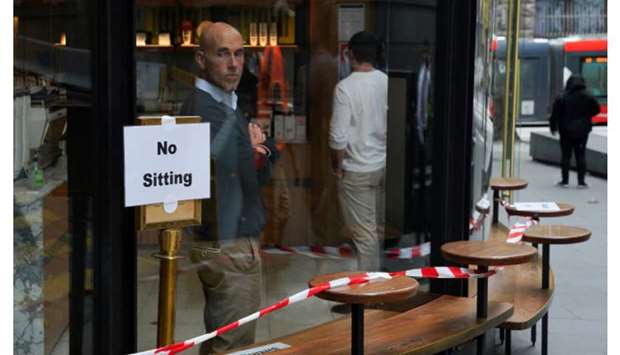Australia will retain curbs on public movement for at least four more weeks, Prime Minister Scott Morrison said yesterday, dashing speculation the sustained low growth in new cases could spur a quicker return to normal.
Australia has avoided the high numbers of coronavirus casualties reported in other countries around the world after closing its borders and imposing strict “social distancing” measures for the past month.
Restaurants, bars and other “non-essential” businesses have closed and public gatherings of more than two people have been banned under the threat of fines and even prison— measures that are expected to double the unemployment rate by mid-year. In response, the daily growth rate of reported new infections has steadied in the low percentage single digits, from about 25% several weeks ago, for a total of about 6,500 infections, including 63 deaths.
Still, Morrison said the rules would not be relaxed until national testing capacity has been increased, contact tracing of known Covid-19 cases expanded and a response to any future outbreak fully prepared. “We want to be very clear with Australians, baseline restrictions we have in place at the moment, there are no plans to change those for the next four weeks,” Morrison told reporters.
Morrison later told the Australian Broadcasting Corporation that coronavirus testing may be expanded to include random sampling. An eventual staggered relaxation on restrictions was likely, he said, with curbs on manufacturing and retail industries being eased first. Morrison has in recent days pushed state and territory leaders to re-open schools.
Morrison has cited medical advice that children carry a low risk of transmitting the virus as he advocated for the re-opening schools to help boost the economy, which is headed for its first recession in three decades.
However, some leaders of the eight states and territories — which administer schools — have departed from that policy and ordered schools to remain shut to all but the children of “essential” workers, including those in the health and grocery sectors.
In Victoria, the second most populous state where officials have told parents to keep children at home if possible, just 3% of children attended school on Tuesday, the first day after the Easter break.
Students in other states and territories remain on mid-term vacation. An agreement on the issue was not reached at a meeting yesterday of the national cabinet, made up of state and federal leaders, formed to tackle the crisis.
Chief Medical Officer Brendan Murphy said Australia’s choice of a “suppression” strategy, as opposed to a full shutdown of public life as adopted by neighbour New Zealand, could free the country of the virus without hefty economic penalties.
“We don’t feel the need to hold the country very seriously in lockdown until we have no cases,” Murphy said. “If that happens with the measures we are doing now, that would be fantastic.”
In Sydney, police entered the Villawood immigration detention centre to end rooftop and hunger strike protests begun by some refugee inmates on Saturday.
Three detainees who refused to come down from the roof were arrested and taken into custody.
Detainees were angry the government has refused pleas to release them from the centre amid the health crisis and denied them testing.
While some countries have released some non-violent detainees from prisons and detention centres, Australia has so far refused to do so.

The mostly deserted city centre is seen following the implementation of stricter social-distancing and self-isolation rules to limit the spread of the coronavirus disease in Sydney, Australia.
